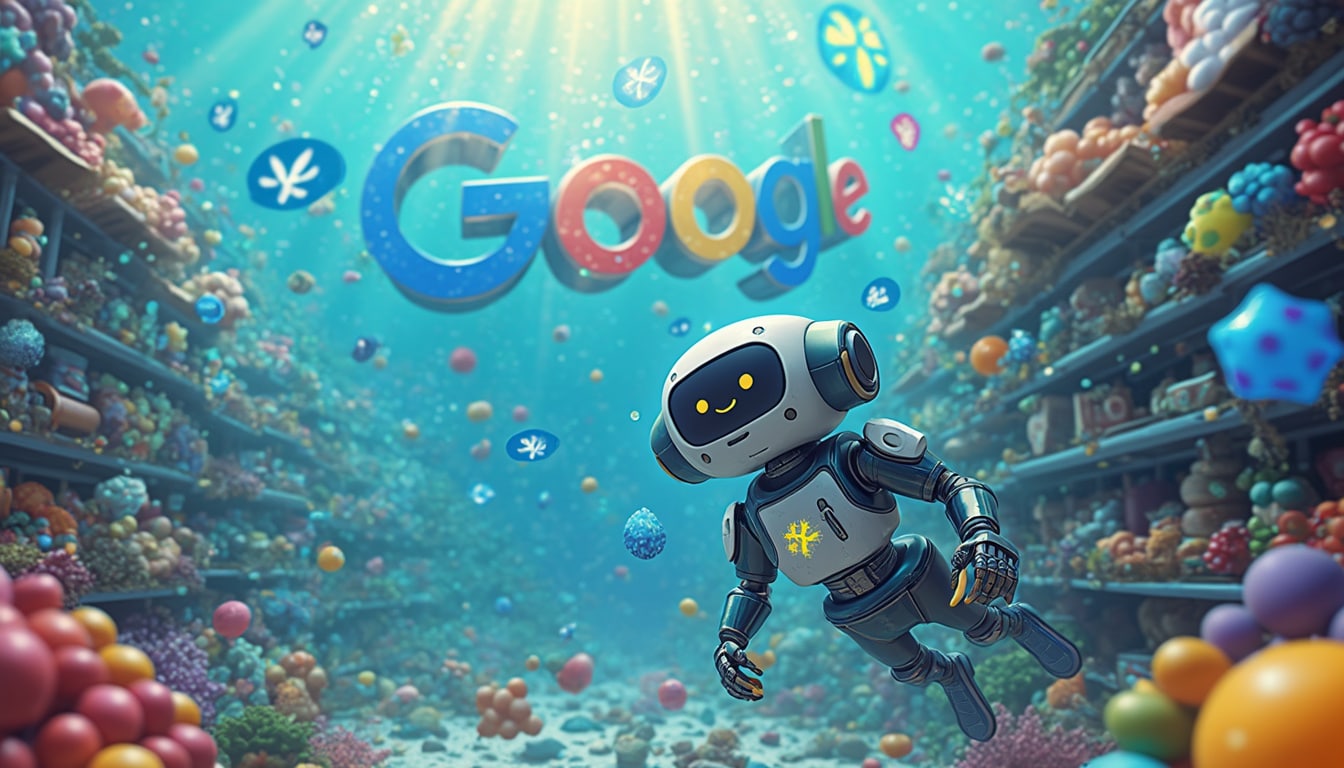« `html
Shopping just got a whole lot smarter.Say goodbye to endless scrolling and hello to personalized recommendations.Thanks to OpenAI, your next online purchase is just a conversation away.
With the latest update, ChatGPT transforms into your very own shopping assistant, seamlessly guiding you through categories like fashion, beauty, electronics, and home equipment. No more sifting through ads or dubious rankings—this tool offers unbiased suggestions complete with detailed descriptions and consumer reviews. Simply type in your needs, and watch as ChatGPT curates options tailored just for you. Dive into a smoother, more intuitive online shopping experience that’s revolutionizing how we buy.

« `html
In the ever-evolving landscape of artificial intelligence, OpenAI has once again made headlines by transforming ChatGPT into a formidable player in the online shopping arena. This strategic move aims to challenge tech giant Google by offering a more personalized and ad-free shopping experience. Let’s delve into how ChatGPT is reshaping the way we shop online and what this means for both consumers and the digital marketplace. Table of contents OpenAI has recently rolled out a dedicated shopping feature for ChatGPT, initially available to users in the United States. This feature allows users to effortlessly search for products across various popular categories such as fashion, beauty, electronics, and home equipment. By simply typing a natural language query, users can receive comprehensive suggestions that include detailed descriptions, summaries of consumer reviews, and direct links to merchant websites. The process is designed to be intuitive and conversational. For instance, if you’re looking for a new smartphone, you can ask ChatGPT to show the best options within your budget. The AI will then provide a curated list of smartphones, highlighting key features, comparing pros and cons, and linking directly to retailers where you can make your purchase. This seamless interaction eliminates the need to sift through countless pages of search results, saving users both time and effort. The introduction of ChatGPT’s shopping feature marks a direct challenge to Google‘s dominance in the search engine market. Traditionally, when users search for products on Google, they are presented with a mix of organic results and sponsored advertisements, often leading to a cluttered and sometimes biased shopping experience. OpenAI counters this by offering an unbiased and personalized alternative where recommendations are based solely on user input without the influence of paid placements. While Google has responded by enhancing its own AI capabilities with Gemini, an AI assistant that prioritizes generated responses over traditional links, ChatGPT maintains a distinct approach. By focusing on a conversational interface, ChatGPT emphasizes user interaction and satisfaction without commercial distractions. This divergence in strategy highlights the intense competition in the AI-driven search and shopping space, with each company striving to offer the most user-friendly and effective solutions. One of the standout features of ChatGPT’s new shopping assistant is its commitment to providing a seamless and ad-free shopping experience. OpenAI has designed the tool to streamline the purchasing process, allowing users to interact directly with the AI to refine their needs, compare options, and receive relevant links to products. This approach eliminates the frustration of navigating through numerous ads and sponsored links that often clutter traditional search engines like Google. According to OpenAI, the goal is to make online shopping as effortless as possible. « Shopping online can be tedious, » the company stated in a recent press release. « With ChatGPT, users no longer need to scroll through dozens of pages on Google. Instead, they can simply converse with the AI, specifying their preferences and receiving tailored recommendations. » This user-centric design not only enhances the shopping experience but also builds trust by ensuring that the suggestions are genuinely based on user needs rather than advertising revenue. Transparency around privacy and monetization is crucial in the digital age, and OpenAI has taken steps to address these concerns with ChatGPT’s shopping feature. Currently, OpenAI does not derive any direct financial benefits from the links provided by ChatGPT. The results are selected independently, ensuring that they are not influenced by advertisements or sponsorships. This approach sets ChatGPT apart from Google, where search results can often be swayed by paid placements. However, the future of this policy remains uncertain. As noted by TechCrunch, the potential for commercial partnerships is significant, especially given the rapid growth in ChatGPT’s user base, which surpassed a billion searches in just one week. While OpenAI maintains that there are no current monetization mechanisms affecting suggestions, the possibility of future collaborations with brands cannot be entirely ruled out. Users should stay informed about any policy changes, especially if OpenAI decides to integrate monetization strategies to sustain and expand the shopping feature. Looking ahead, OpenAI has ambitious plans to further enhance ChatGPT’s capabilities in the shopping domain. The next significant update includes the addition of a memory feature, which will allow ChatGPT to retain user preferences and shopping habits. This advancement aims to make the AI an even more effective personal assistant, capable of anticipating and simplifying future purchases based on past interactions. With memory integration, ChatGPT will not only remember your favorite brands or preferred styles but also understand your purchasing behaviors to provide increasingly accurate and personalized recommendations. This evolution could revolutionize online shopping by making it more intuitive and tailored to individual needs, potentially setting a new standard for AI-driven consumer experiences. The rapid adoption of ChatGPT’s shopping feature underscores its significant impact on digital shopping trends. In just a week, ChatGPT surpassed a billion searches, highlighting its growing role in everyday digital interactions. This surge in usage indicates that consumers are ready for a more personalized and efficient shopping experience, one that minimizes the noise of traditional search engines and focuses on user-centric recommendations. As more users engage with ChatGPT for their shopping needs, we can expect a shift in how online retailers approach digital marketing and customer engagement. The emphasis will likely move towards enhancing the AI’s ability to understand and predict consumer preferences, fostering a more interactive and responsive shopping environment. Additionally, the integration of AI in shopping could lead to more data-driven insights, enabling retailers to tailor their offerings and marketing strategies more effectively. For those interested in exploring the broader implications of AI in technology, resources such as DIA, the first AI-powered web browser, offer valuable perspectives on how AI is poised to disrupt various aspects of our digital lives. Staying informed about these developments is crucial for both consumers and businesses aiming to navigate the evolving digital landscape. While the prospects of AI-driven shopping assistants like ChatGPT are exciting, there are several challenges and considerations to address. Privacy concerns remain at the forefront, as users entrust AI with sensitive information about their shopping habits and preferences. Ensuring that this data is handled securely and transparently is essential to maintaining user trust and compliance with data protection regulations. Moreover, the potential for AI bias and the accuracy of recommendations are critical factors that OpenAI must continually refine. As ChatGPT learns from user interactions, it’s imperative that the AI provides fair and unbiased suggestions that cater to a diverse range of needs and preferences. This requires ongoing monitoring and adjustments to the underlying algorithms to prevent any inadvertent favoritism or exclusion of certain products or categories. Additionally, the reliance on third-party platforms to complete purchases introduces another layer of complexity. Ensuring seamless integration and a secure checkout process is vital to providing a positive user experience. Users must feel confident that their transactions are safe and that their personal information is protected throughout the entire shopping journey. For more insights into the challenges of online interactions, navigating website cookies provides an in-depth look at the difficulties users face in managing their online privacy settings, a topic closely related to the concerns surrounding AI-driven shopping assistants. What sets ChatGPT apart in the crowded AI marketplace is its focus on conversational interaction and user-centric design. Unlike traditional search engines that prioritize a static list of links, ChatGPT engages users in a dialogue, making the shopping experience more dynamic and engaging. This conversational approach allows for better understanding and refinement of user needs, resulting in more accurate and satisfying recommendations. Furthermore, the absence of advertisements within ChatGPT’s shopping feature enhances the user experience by removing distractions and potential biases. Users can trust that the suggestions are based purely on their preferences and the AI’s analysis rather than influenced by financial incentives. This trust is a significant advantage over platforms where sponsored content can compromise the integrity of search results. As AI technology continues to advance, ChatGPT’s ability to integrate more sophisticated features, such as memory and deeper personalization, will likely solidify its position as a leading AI-driven shopping assistant. The emphasis on creating a seamless, intuitive, and trustworthy shopping experience gives ChatGPT a competitive edge that could redefine the future of online shopping. Early adopters of ChatGPT’s shopping feature have reported a range of positive experiences, highlighting the AI’s ability to simplify the shopping process and deliver relevant recommendations. Users appreciate the ease of interacting with the AI, which feels more like having a knowledgeable assistant rather than navigating a faceless search engine. For example, a user searching for sustainable fashion options can receive a curated list of eco-friendly brands and products, complete with detailed descriptions and links to purchase. This level of personalization and relevance enhances the overall shopping experience, making it easier for users to find exactly what they’re looking for without the hassle of extensive searching. Moreover, the integration of consumer review summaries helps users make informed decisions quickly. By providing concise overviews of what other customers are saying, ChatGPT empowers users to weigh the pros and cons of different products without having to read through lengthy reviews themselves. This feature not only saves time but also enhances the decision-making process, leading to higher satisfaction with purchases. For more on how AI is transforming various industries, you might find this article on QR code security insightful, as it explores the intersection of AI and online safety, another critical aspect of the digital age.how does ChatGPT’s new shopping feature work?
openAI vs. google: the battle for online shopping supremacy
seamless shopping experience without advertisements
privacy and monetization: what users should know
the future of ai-based shopping assistants
user adoption and the impact on digital trends
challenges and considerations in ai-driven shopping
the competitive edge of chatGPT in the ai marketplace
real-world applications and user experiences
« `
online shopping is out and i hate shopping
— jared wolf (@jar3dwolf) January 3, 2025














